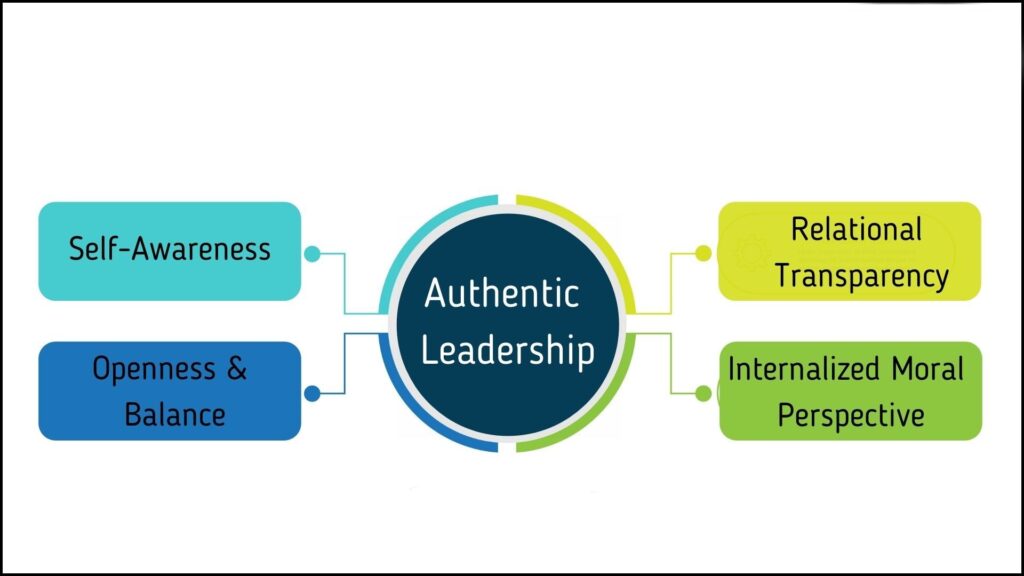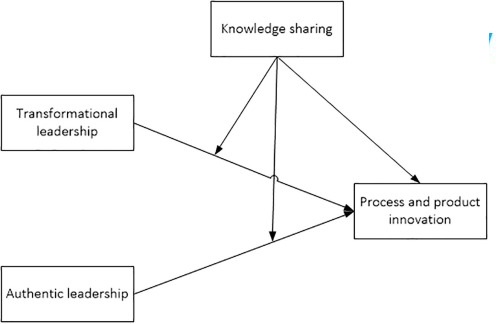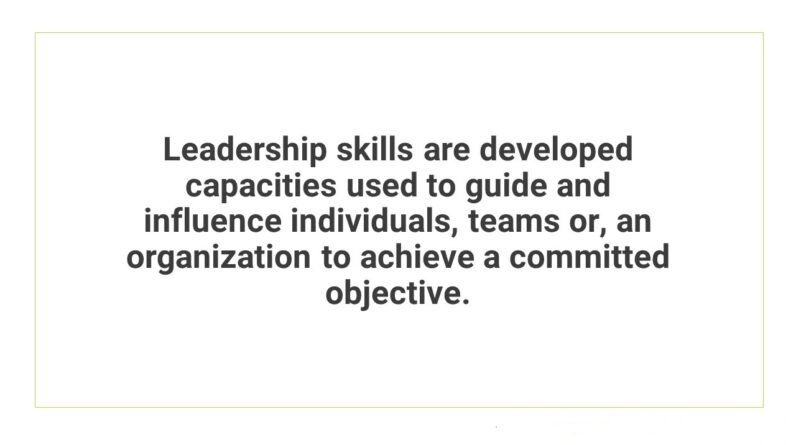
So what is authentic leadership, and how do you practice it? Authentic leadership is a type of management that includes self-awareness and an internalized moral perspective. This article explores some of the characteristics and practices that make authentic leaders effective. You’ll learn how to build relationships with your team and develop a strong, authentic moral compass. Authentic leaders make their followers feel important. They listen well and take the time to know people. They remember things about them and respond more positively to them.
Authentic leadership is a pattern of behaviors
Authentic leadership is a pattern of behaviors that leads to results. An authentic leader is committed to the highest standards of work, values, and integrity. Authentic leaders do not tolerate shortcuts, and they uphold rules and ethics. Authentic leaders model their own values. They demonstrate these behaviors to their followers, which in turn helps them develop ethical standards and integrity. In addition to these characteristics, authentic leaders also display an interest in personal growth.
Authentic leaders develop relationships with their team members, especially those that aren’t formal leaders. They actively seek feedback, listen to their team members, and are open to their employees’ ideas. They also use self-regulation to live their values. Authentic leaders have triple-layered benefits: increased employee engagement, higher engagement, and flourishing teams. Employees are more committed, engaged, and productive when they believe their managers are authentic.
Authentic leaders stimulate innovation by empowering their followers to challenge existing patterns. This attitude fosters creative behavior and encourages employees to go beyond their job descriptions. The results of this type of authenticity are highly measurable, and it is likely that authentic leaders will inspire their followers to go beyond what is required to complete their assigned tasks. Authentic leaders are open to experimentation and are willing to experiment. There are studies that indicate that innovative employees are more likely to be inspired by authentic leaders.
Authentic leadership requires self-awareness. Self-awareness allows for a transparent relationship with others. Practicing self-awareness helps leaders to develop a sense of empathy and seek feedback from their teams. It also prevents passive aggression, which often leads to a convoluted response. Authentic leaders are transparent with their employees. In addition to this, they practice proactive behavior, which could change the status quo.
Authentic leadership style of management
Authentic leaders are known for their ability to build relationships with colleagues and employees. They listen to what people have to say and focus on the big picture rather than on the short term. They also encourage their teams to share ideas and opinions. Authentic leaders also encourage employees to approach them with any questions or concerns. The benefits of authentic leadership can be seen across the board. These leaders are effective in inspiring teams, individuals, and organizations.
An authentic leader is ethical and believes in a high moral standard. As such, they share success with their teams and give credit where credit is due. This type of leadership can help businesses build a positive brand perception and improve employee retention. Authentic leaders are also less likely to face legal liabilities. Moreover, they are open about any mistakes they make. This type of leadership style also helps to improve collaboration and trust within a business.
Authentic leadership is a style of management that promotes honesty and authenticity. It involves demonstrating self-awareness, relational transparency, and internalized moral perspective. Authentic leaders create an environment that is conducive to trust and loyalty among employees. In addition, they promote high morale and extraordinary results. So, how does an authentic leader do it? Read on to learn more about this style of management.
Authentic leaders must be transparent and honest with their people. They must be open with their teams and acknowledge their mistakes and shortcomings. These leaders foster a culture of openness and honesty among their team and organization. In addition to being honest, authentic leaders also have a strong moral code. In the workplace, they act on their principles and beliefs. In addition to demonstrating a high moral code, they also share their glory with their team.
Authentic leadership involves self-awareness
Authentic leadership involves a number of different practices that build emotional intelligence. Emotional self-awareness is a crucial skill that helps individuals maintain emotional balance. Self-awareness also helps leaders to improve their own performance. Self-awareness is crucial in the development of a leader’s performance as well as that of the organization. Self-aware leaders are more capable of developing their teams, individuals, and organizations.
In addition to learning about others and their strengths and weaknesses, authentic leaders must understand themselves. They must process their experiences and understand what they are capable of and what they still need to learn. Self-aware leaders understand what they stand for and why they are there. Self-aware leaders have an understanding of what drives them to be a successful leader. This awareness enables them to build a culture that encourages self-awareness.
In addition to cultivating their emotional intelligence, authentic leaders practice their values in the workplace. These leaders are open to criticism, take time to reflect on their strengths and weaknesses, and encourage employees to express their concerns and ideas. Self-awareness can be developed through a variety of techniques, including journaling, getting feedback from colleagues, and investing in personal development. By recognizing the importance of being self-aware, authentic leaders can make better decisions and manage their teams more effectively.
Developing self-awareness allows people to look deeper and learn about their motivations. By knowing what they believe and why they do what they do, they can maintain focus and overcome obstacles one by one. Self-aware leaders also practice relational transparency. Their thoughts are balanced and they do not display their emotions excessively. The process of self-awareness is the key to establishing authentic leadership. But how do you cultivate it?
Internalized moral perspective
Authentic leadership is a theory of management that emphasizes the importance of ethical conduct and a moral perspective on organizational behavior. Leaders who demonstrate an internalized moral perspective are not motivated by self-gain but rather by their desire to advance their organizations. They are often highly ethical. If you want to achieve authentic leadership, you need to understand and appreciate your personal values. Here are some characteristics of authentic leadership. Read on to learn more about the theory and its practical applications.
Self-awareness: Authentic leaders have a self-awareness of their own strengths and weaknesses, and they study their own behavior to identify patterns. This involves analyzing the circumstances in which each individual acts and past experiences that might contribute to certain behaviors. Authentic leaders consider opposing views and seek to avoid conflict. Moreover, they encourage employees to share their experiences and opinions so they can build trust. Authentic leaders must be aware of their values in a way that doesn’t impede their ability to lead effectively.
Authentic leaders are honest and transparent. They listen to their teams and don’t hide their agendas. They are willing to give constructive feedback and admit mistakes. They also encourage transparency among their team and in the organization. Lastly, they are willing to put the needs of the organization before their own. The ultimate goal of the leader is the success of the organization, not personal gains. So, how do you learn how to be an authentic leader?
Authentic leaders are generally optimistic and empathetic. They strive to build trust, and are driven by positive moral values. This theory is linked to positive psychology, and forms the foundations of charismatic and transformational leadership. The core ideas of authentic leadership are positive moral framework, positive ethics, and internalized moral perspective. However, it is not definitive. Further research is needed to confirm the validity of the theory. The definition of authentic leadership and its parameters is based on a few questions posed by scholars.
Relational transparency
Authentic leadership involves relational transparency – an openness and truthfulness that strengthens trust and builds relationships. It also involves self-disclosure, a willingness to share personal information in a way that fosters trust. Emotional intelligence involves regulating self-reflection and identifying the best way to respond to various situations. It is also important for leaders to be honest with themselves and others to improve relationships and performance.
In authentic leadership, the leader seeks to understand the perspectives of others and demonstrates self-awareness. Authentic leaders also seek feedback from those around them, and they use judgment. However, if they seek feedback from others, they should be aware that the feedback they get will be constructive. Authentic leaders display relational transparency by sharing their feelings, beliefs, and opinions, without making impulsive decisions. They also seek to maintain a balance between the feelings of others and their own.
Authentic leaders are exemplary role models for fostering trust and relational transparency. They share their thoughts openly and constructively, and they admit when they’re wrong. They strive to make their team and organization more transparent, putting their employees’ needs ahead of their own. The main purpose of their leadership is to help the organization achieve its goals. If they are successful, it will show in the results they provide. It will be evident to others that they are authentic leaders.
Balanced processing
Balanced processing is a mode of decision-making that falls somewhere in between intuitive and logical thinking. When leaders are in a balanced state, they are able to take in all relevant information and make well-rounded decisions. This approach is often associated with authentic leadership, as it allows leaders to remain aware of their own biases and values while also considering the needs of others. While balanced processing can be time-consuming, it ultimately leads to more effective decision-making. In today’s fast-paced world, it is more important than ever for leaders to adopt a balanced processing style in order to make thoughtful, compassionate decisions.
Which is a strength of authentic leadership?
One of the strengths of authentic leadership is that it can inspire others to be their best selves. When people see that their leader is being true to themselves, they are more likely to buy into the leader’s vision and work towards collective goals. Additionally, authentic leaders typically have an easier time building trust with those they lead, as people are more likely to feel comfortable following someone who is genuine. Finally, authentic leaders often exhibit a high degree of resilience, which allows them to bounce back from setbacks and continue moving forward. Overall, these qualities make authentic leaders more effective in achieving their goals.
What are some challenges associated with authentic leadership?
One of the challenges associated with authentic leadership is that it can be time-consuming. Leaders who adopt this style often need to take the time to reflect on their values and motivations, and to consider the needs of others before making decisions. Additionally, authentic leaders may need to put in extra effort to build trust with those they lead, as people may be hesitant to follow a leader who is not being completely transparent. Finally, while authentic leaders are typically more resilient, they may still face challenges when things do not go according to plan. Despite these challenges, authentic leadership can be an effective way to lead others and achieve success.
How do you develop authentic leadership?
There is no one-size-fits-all answer to this question, as the development of authentic leadership requires self-reflection and a willingness to grow. However, there are a few key things that people can do to develop their authentic leadership skills. First, it is important to become aware of your own values and motivations. Once you have a clear understanding of what drives you, it will be easier to stay true to yourself in difficult situations. Additionally, it is important to learn how to listen to and empathize with others. This will help you better understand their needs and build trust within your team. Finally, it is important to cultivate resilience, so that you can bounce back from setbacks and continue moving forward. By developing these quality leadership skills, you will be well on your way to becoming an authentic leader.
Why is it important to be authentic?
It is important to be authentic for a number of reasons. First, when you are being authentic, you are more likely to stay true to your values and beliefs. This can inspire others to do the same, which can create a more positive and productive work environment. Additionally, people are more likely to trust and respect you if they see that you are being genuine. Finally, by being authentic, you model what it means to be a leader. People who see you as a role model will be more likely to emulate your behavior, which can help develop their own leadership skills. Ultimately, being authentic is essential for both individual growth and organizational success.
What are some tips for being an authentic leader?
There are a few key things that you can do to be an authentic leader. First, it is important to stay true to your values and beliefs. This can help you make decisions that are in line with your goals and inspire others to do the same. Additionally, it is important to be transparent with those you lead. People will be more likely to trust and respect you if they see that you are being genuine. Finally, it is important to cultivate resilience. Things will not always go according to plan, but by bouncing back from setbacks, you can show others that it is possible to overcome challenges. By following these tips, you can develop into an authentic leader who is both respected and effective.
Conclusion
Authentic leadership is a style of leadership that is based on being true to oneself. This means that authentic leaders are aware of their values and motivations, and they lead in a way that is consistent with these inner qualities. As a result, authentic leaders are often able to create more trusting and cohesive relationships with those they lead. Furthermore, they are able to inspire others to achieve collective goals, as people are more likely to buy into a leader’s vision when it is based on authenticity. Finally, authentic leaders are typically more resilient in the face of adversity, as they are anchored by their values and beliefs. The four key characteristics of authentic leaders are self-awareness, alignment of actions and values, ability to inspire, and resilience. These qualities enable them to create more effective teams and achieve greater success in their pursuits.






